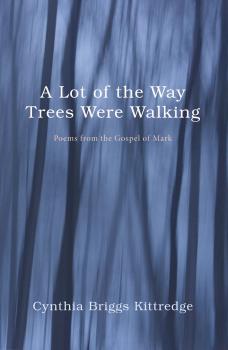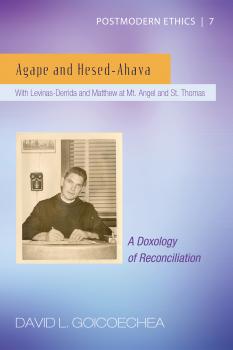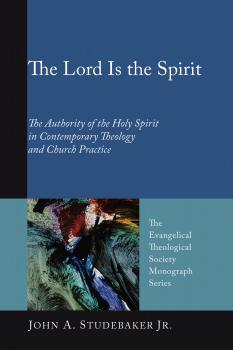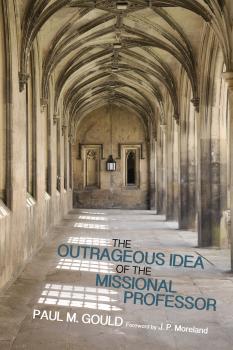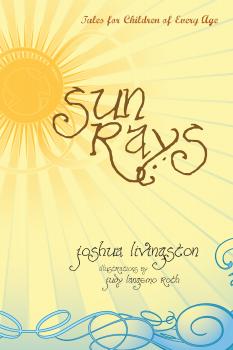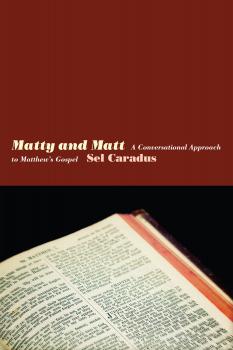ТОП просматриваемых книг сайта:
Религия: прочее
Различные книги в жанре Религия: прочее, доступные для чтения и скачиванияАннотация
This cycle of poems travels the path of the Gospel of Mark, rereading and retelling the story, flashing back and anticipating, reading from unusual vantage points, flowing with the author's perspective and rowing against it. Crossing the genres of poetry and biblical interpretation, the poems themselves become a way to experience the Gospel of Mark.
Аннотация
In this exciting collection of hymns, Kim Fabricius not only skillfully guides us through the Christian year–from Advent and Christmas, through Lent, to Easter and Pentecost–he also imaginatively explores the church's perennial themes: the mystery of God, creation and providence, suffering and death, worship and prayer. He writes for disciples seeking an intelligent faith that, eschewing cant and banality, boldly addresses the contested issues of war and peace, wealth and poverty, gender and sexuality, race and immigration, evolution and ecology. With an eye for the striking image and an ear for the unusual rhyme, Kim writes in a colloquial style that, while often poetically playful, is always theologically serious. Here are hymns that Christians can sing with heart and mind, in joy and sorrow, as passionate expressions of gratitude to God and commitment to the New World coming.
Аннотация
Goicoechea presents his third volume in a series on agape. In this book he shows in four ways how the agape of Jesus fulfills the ahava and hesed of the Hebrew Bible. First, he shows existentially how he learned and lived this for six years in a Benedictine Minor Seminary and then for three years in a Sulpician Major Seminary. Second, he demonstrates how ahava or our love for God and neighbor and hesed or God's love for us develop through the Hebrew Bible. Goicoechea argues that St. Matthew's Gospel explains the fulfilment of ahava and hesed with Jesus' agape. He concludes by drawing attention to how Levinas and Derrida, two Jewish postmodern philosophers, treat Jewish and Christian love.
Информация о книге
Автор произведения David L. Goicoechea
Жанр Религия: прочее
Серия Postmodern Ethics
Аннотация
The Roman Catholic Church issued its first, modern, one-volume Lectionary–a book of biblical texts assigned for every day of the year–in 1970 in response to the Second Vatican Council's call for a greater fare of Scripture during Mass. By the time the Lectionary was revised and published between 1998 and 2002, it had grown to four volumes. Because of the revision, many weekday celebrations of saints were assigned texts that had not been so in the 1970 Lectionary.
Because of the Lectionary's success, many other Christian denominations adopted and adapted the Lectionary to fit their own needs. Thus, Anglicans, Episcopalians, Presbyterians, Methodists, Lutherans, and many others began to use the Lectionary. In those churches that have weekday services, the same Scripture texts may be heard along with the same celebration of a saint. This volume provides reflections on the proper biblical passages for weekday saints. Any member of a Christian congregation marking the celebration of a saint on a weekday will find these reflections on the Scripture texts assigned to a particular saint very helpful.
Because of the Lectionary's success, many other Christian denominations adopted and adapted the Lectionary to fit their own needs. Thus, Anglicans, Episcopalians, Presbyterians, Methodists, Lutherans, and many others began to use the Lectionary. In those churches that have weekday services, the same Scripture texts may be heard along with the same celebration of a saint. This volume provides reflections on the proper biblical passages for weekday saints. Any member of a Christian congregation marking the celebration of a saint on a weekday will find these reflections on the Scripture texts assigned to a particular saint very helpful.
Аннотация
Although the doctrine and work of the Holy Spirit is no longer being ignored in theology (as was often the case in centuries past), the authority of the Spirit remains essentially undefined. The need for such a definition, however, is urgent. Some dangerous trends in the contemporary understanding of the Spirit have developed (trends that can only be exposed through careful exegesis of Scripture and theological clarification). Indeed, some contemporary models often leave us with a nonauthoritative «Spirit» predisposed toward universalism, experientialism, or panentheism.
This work will attempt to show that the nature of the Holy Spirit's authority can be clearly defined through biblical and systematic theology. When we investigate the Spirit's place within the pattern of divine authority, as specified in Scripture, we discover that the Holy Spirit indeed possesses a unique authority as divine Person, Christ's Executor, Teacher, and Governor of the Church.
Such a work will be helpful for both the theologian and the pastor. First, definitions of the Spirit's authority will be developed through historical, exegetical, and theological analysis. Then these definitions will be applied to specific church practices, including hermeneutics, church structure and guidance, and Christian spirituality. A response will also be given to those «practical theologies» that are subtly diminishing the Spirit's authority in relation to the contemporary church.
This work will attempt to show that the nature of the Holy Spirit's authority can be clearly defined through biblical and systematic theology. When we investigate the Spirit's place within the pattern of divine authority, as specified in Scripture, we discover that the Holy Spirit indeed possesses a unique authority as divine Person, Christ's Executor, Teacher, and Governor of the Church.
Such a work will be helpful for both the theologian and the pastor. First, definitions of the Spirit's authority will be developed through historical, exegetical, and theological analysis. Then these definitions will be applied to specific church practices, including hermeneutics, church structure and guidance, and Christian spirituality. A response will also be given to those «practical theologies» that are subtly diminishing the Spirit's authority in relation to the contemporary church.
Martin Luther's Two Ways of Viewing Life and the Educational Foundation of a Lutheran Ethos - Leonard S. Smith
Аннотация
Like Leonard Smith's larger study, Religion and the Rise of History, this essay, Martin Luther's Two Ways of Viewing Life, asserts that Luther's well-known «at-the-same-time,» simul, or paradoxical way of viewing life does not capture Luther's thought as a whole, because it does not represent his deeply incarnational and dynamic, mystical and holistic, particularizing and historical way of viewing life based on the power of the Word and the Spirit of God either in his own life or in human history.
Smith contends (1) that the best way to capture Luther's «second» basic way of thinking and of viewing life is through the connected prepositions (connected especially for Lutherans) «in, with, and under»; (2) that this second basic way was based primarily on the Gospel of John and its great Prologue, which shows how God is acting, creating, and redeeming, and how Jesus is «the Word become flesh»; and (3) that understanding both of Luther's ways of viewing life is helpful for understanding Lutheran education and «a Lutheran ethos» since the sixteenth century. Since this brief essay is written primarly for a general audience, it can easily be used as a text or supplementary reading for a class, seminary, or group discussion.
Smith contends (1) that the best way to capture Luther's «second» basic way of thinking and of viewing life is through the connected prepositions (connected especially for Lutherans) «in, with, and under»; (2) that this second basic way was based primarily on the Gospel of John and its great Prologue, which shows how God is acting, creating, and redeeming, and how Jesus is «the Word become flesh»; and (3) that understanding both of Luther's ways of viewing life is helpful for understanding Lutheran education and «a Lutheran ethos» since the sixteenth century. Since this brief essay is written primarly for a general audience, it can easily be used as a text or supplementary reading for a class, seminary, or group discussion.
Аннотация
The outrageous idea of this book is that God wants to use professors as professors to reach others, transform the academy, and meet the needs of the world. God is on a mission to redeem and restore this fallen world, and as members of one of the most influential institutions in society, Christian professors in the university play an important role in that mission. Becoming a missional professor will require a clear vision of God's heart for the lost as well as humankind's purpose and calling under the banner of Christ, an understanding of the significance of the university as a cultural shaping institution and mission field, and a desire for Christian wholeness in a fragmented world. This idea is outrageous because many Christian professors struggle to live missionally and need a clear vision of such a life as well as role models to lead the way. Many professors already living missional lives need encouragement to «excel still more» (1 Thess 4:10). We all need God's grace and mercy as we try to faithfully follow Christ within the university.
Аннотация
Join Jody Seymour as he leads us on a journey through the Gospel of Mark. A Senior Minister in the United Methodist Church for many years, Jody has drawn from his learning and his lively imagination to introduce-or reintroduce-you to the hero of this Gospel. This devotional commentary will, when read alongside the Gospel itself, give you the opportunity to immerse yourself in the story of Jesus' life and come closer to the heartbeat of God. Let the words of this first and oldest Gospel make a mark on you, as you discover in a fresh way its power to transform. Includes a guide for personal reflection or group discussion.
Аннотация
In those hasty moments when a child can no longer stand the insanity of the grown-up world and the only way to properly react is to cry, there is nothing like a good story to help wind them back in. Stories bring us together. These days, families fall apart because they lack a common story. Nation rises up against nation because we've traded shared stories for individual ideals. What is the antidote for the decay and erosion of our society? What is the cure for the sickness and separation of our day? Whatever it is, it starts in the home and it may be as simple as a circle of friends telling tales. Let us come on our knees like children, sit at the feet of our Master, and listen as he tells us a story . . . This collection is for anyone who is a child: fifty-one tales in all, written with brevity in the interest of short attention spans, yet didactic in that each contains a moral center. While they are geared towards both younger children and teenagers, parents and educators may find themselves awakening as they read, leaving them to wonder, «Who is the child? And who is the Teacher?»
Аннотация
If you sit in a pew, Sunday by Sunday, you will hear parts of Matthew's Gospel read. But you might never have read it yourself from start to finish. And if you are not a churchgoer, you might not think to read any of it. Yet it has been, and continues to be, an important part of our heritage. This book considers a group of people who meet, week by week, to try to untangle what Matthew is about. A complete text of the Gospel is included in this book and many questions are raised, the kind that you and I might ask. Some conclusions are reached; many issues remain. But no one goes away unchanged.

